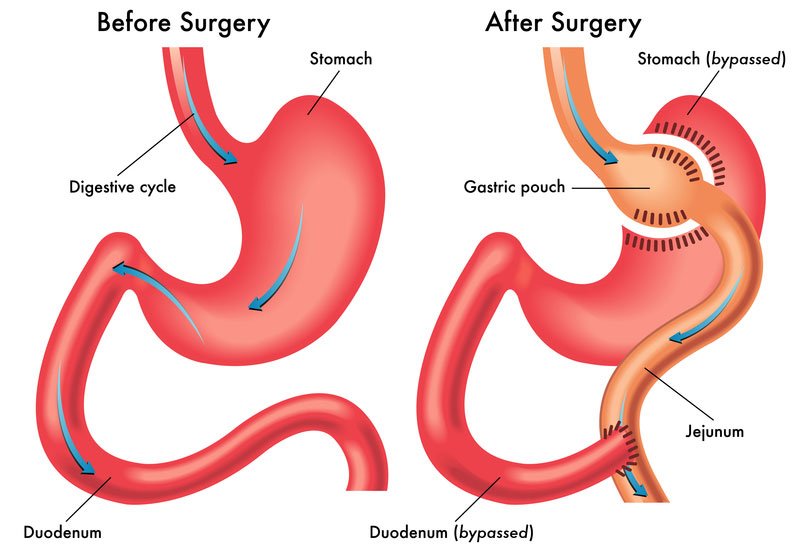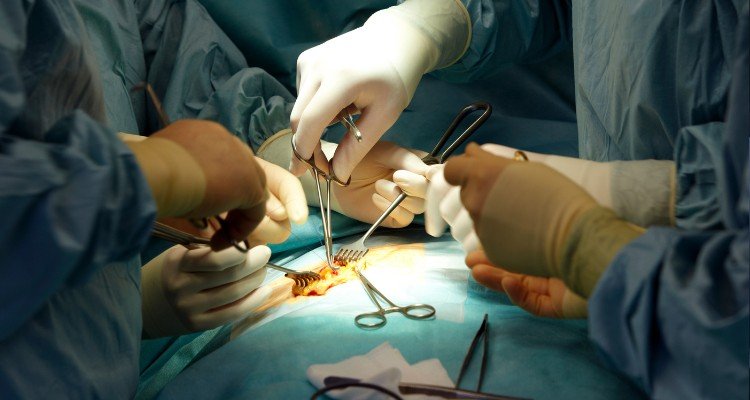
Let’s start with the most important thing, defining gastric bypass. It is an increasingly common surgical intervention used to help people with severe obesity lose weight and improve their health.
In this article, we will explore this procedure in detail, including how it works, who are suitable candidates, the potential risks and benefits, as well as postoperative considerations.
Remember that if you are thinking about having this surgery or have already had it and your doctor has recommended exercise, you can sign up for a gastric bypass surgery workout routine.
Gastric bypass is a type of bariatric surgery that reduces the size of the stomach and alters the digestive system to limit the amount of food a person can eat and absorb.
During the procedure, the surgeon creates a small pouch at the top of the stomach and connects this pouch directly to the small intestine, bypassing part of the stomach and the upper small intestine.

Gastric bypass works in several ways to help people lose weight. First, by reducing the size of the stomach, it limits the amount of food a person can eat before feeling full.
In addition, by bypassing part of the stomach and small intestine, it reduces the amount of nutrients the body can absorb from food, which also contributes to weight loss.
There are several types of this weight loss surgery procedures, including:
Each of these procedures has its own specific advantages and considerations, and the surgeon will determine which is most appropriate for each patient based on his or her medical history and weight loss goals.
Gastric bypass is a treatment option for people with severe obesity who have tried to lose weight through lifestyle changes, such as diet and exercise, but have been unsuccessful.
Suitable candidates for this surgery typically have a body mass index (BMI) of 40 or more, or a BMI of 35 or more with obesity-related medical conditions, such as type 2 diabetes or high blood pressure.

You can have an estimate of your own BMI in our BMI calculator, remember that this is an estimated value and does not reflect a real value at all. If you want to know your real value I recommend you to see a health specialist.
Before undergoing this weight loss surgery, patients must undergo a thorough evaluation to determine their suitability for the procedure.
This may include laboratory tests, psychological evaluations, cardiac evaluations and consultations with various medical specialists, such as endocrinologists, nutritionists and bariatric surgeons.
Like any surgical procedure, gastric bypass carries certain risks, including infection, bleeding, blood clots and anesthesia-related complications. However, for many people with severe obesity, the benefits of losing weight and improving overall health outweigh the potential risks.

The amount of weight lost after surgery varies with each individual, but many people can expect to lose 60% to 80% of their excess weight within one to two years after the procedure.
Recovery time after gastric bypass can vary, but most people can return to work and resume normal activities within a few weeks after surgery. However, it is important to follow the medical team’s recommendations and make lifestyle changes to optimize long-term results.
After gastric bypass, patients are advised to adopt a healthy lifestyle that includes a balanced diet, regular exercise, stress control and continuous medical follow-up.
You can start with a personalized workout at your home or gym or by hiring a personalized online service.
It is also important to avoid excessive consumption of foods high in fats and sugars, as well as to follow the guidelines for fluid intake and vitamin supplements.
Now you know a little more about gastric bypass, write me in the comments if you are planning to have this surgery and why.

Bachelor of Sports Science
Personal Trainer - Fitmind Academy